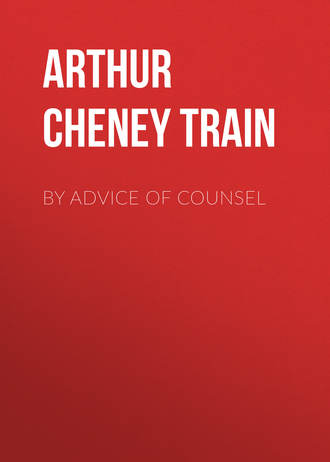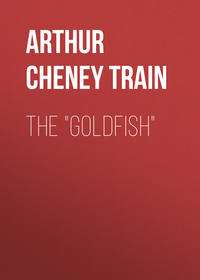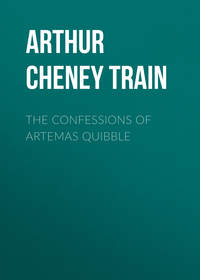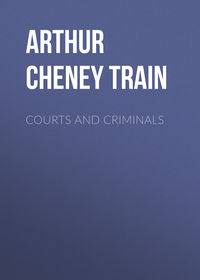 полная версия
полная версияBy Advice of Counsel
Tutt smiled and fumbled in an open box for another cigarette.
"My dear sir," he replied, "no paper could possibly be treated as part of a will—even if extant at the time the will was executed—unless distinctly referred to in the will itself. In a word, there must be a clear and unmistakable intention on the part of the testator to attempt to incorporate the extraneous paper by reference. Now, here, there is no reference to the paper in the will at all."
"That is true!" admitted Payson. "But—"
"But even if there were," went on Tutt, eagerly, "the law is settled in this state that where a testator—either through carelessness or a desire to economize space or effort, has referred in his will to extraneous papers or memoranda, either as fixing the names of beneficiaries of particular devises or bequests, or as fixing the amount or the manner in which the amount of such devises or bequests is to be ascertained, such a paper must not contain any testamentary disposition of property. In a word the testator having willed something can identify it by means of an extraneous paper if properly designated, but he cannot will the thing away by an extraneous paper no matter how referred to. For example, if A wills to B 'all the stock covered by my agreement of May 1, with X' it merely describes and identifies the thing bequeathed,—and that is all right. The law will give effect to the identifying agreement, although it is separate from the will and unattested. But, if A's will read 'and I give such further bequests as appear in a paper filed herewith' and the paper contained a bequest to B of 'all the stock covered by my agreement of May 1, with X' it would be an attempted bequest outside of the will and so have no legal effect."
"Thanks," said Payson. "I understand. So in no event whatever could this letter have any legal effect?"
"Absolutely none whatever!—You're perfectly safe!" And Tutt leaned back with a comfortable smile.
But Payson did not smile in return. Neither was he comfortable. Be it said for him that, however many kinds of a fool he may have been, while momentarily relieved at knowing that he had no legal obligation to carry out his father's wishes so far as Sadie Burch was concerned, his conscience was by no means easy and he had not liked at all the tone in which the paunchy little lawyer had used the phrase "you're perfectly safe."
"What do you mean by 'perfectly safe'," he inquired rather coldly.
"Why, that Sadie Burch could never make you pay her the legacy—because it isn't a legal legacy. You can safely keep it. It's yours, legally and morally."
"Well, is it?" asked Payson slowly. "Morally, isn't it my duty to pay over the money, no matter who she is?"
Tutt, who had tilted backward in his swivel chair, brought both his feet to the floor with a bang.
"Of course it isn't!" he cried. "You'd be crazy to pay the slightest attention to any such vague and unexplained scrawl. Listen, young man! In the first place you haven't any idea when your father wrote that paper—except that it was at least seven years ago. He may have changed his mind a dozen times since he wrote it. It may have been a mere passing whim or fancy, done in a moment of weakness or emotion or temporary irrationality. Indeed, it may have been made under duress. Nobody but a lawyer who has the most intimate knowledge of his clients' daily life and affairs has the remotest suspicion of—Oh, well, we won't go into that! But, the first proposition is that in no event is it possible for you to say that the request in that letter was the actual wish of your father at the time of his death. All you can say is that at some time or other it may have been his wish."
"I see!" agreed Payson. "Well, what other points are there?"
"Secondly," continued Tutt, "it must be presumed that if your father took the trouble to retain a lawyer to have his will properly drawn and executed he must have known first, that it was necessary to do so in order to have his wishes carried out, and second, that no wish not properly incorporated in the will itself could have any legal effect. In other words, inferentially, he knew that this paper had no force and therefore it must be assumed that if he made it that way he intended that it should have no legal effect and did not intend that it should be carried out. Get me?"
"Why, yes, I think I do. Your point is that if a man knows the law and does a thing so it has no legal effect he should be assumed to intend that it have no legal effect."
"Exactly," Tutt nodded with satisfaction. "The law is wise, based on generations of experience. It realizes the uncertainties, vagaries, and vacillations of the human mind—and the opportunities afforded to designing people to take advantage of the momentary weaknesses of others—and hence to prevent fraud and insure that only the actual final wishes of a man shall be carried out it requires that those wishes shall be expressed in a particular, definite and formal way—in writing, signed and published before witnesses."
"You certainly make it very clear!" assented Payson. "What do executors usually do under such circumstances?"
"If they have sense they leave matters alone and let the law take its course," answered Tutt with conviction. "I've known of more trouble—! Several instances right here in this office. A widow found a paper with her husband's will expressing a wish that a certain amount of money should be given to a married woman living out in Duluth. There was nothing to indicate when the paper was written, although the will was executed only a month before he died. Apparently the deceased hadn't seen the lady in question for years. I told her to forget it, but nothing would suit her but that she should send the woman a money order for the full amount—ten thousand dollars. She kept it, all right! Well, the widow found out afterwards that her husband had written that paper thirty years before at a time when he was engaged to be married to that woman, that they had changed their minds and each had married happily and that the paper with some old love letters had, as usually happens, got mixed up with the will instead of having been destroyed as it should have been. You know, it's astonishing, the junk people keep in their safe deposit boxes! I'll bet that ninety-nine out of a hundred are half full of valueless and useless stuff, like old watches, grandpa's jet cuff buttons, the letters Uncle William wrote from the Holy Land, outlawed fire insurance and correspondence that nobody will ever read,—everything always gets mixed up together,—and yet every paper a man leaves after his death is a possible source of confusion or trouble. And one can't tell how or why a person at a particular time may come to express a wish in writing. It would be most dangerous to pay attention to it. Suppose it was not in writing. Morally, a wish is just as binding if spoken as if incorporated in a letter. Would you waste any time on Sadie Burch if she came in here and told you that your father had expressed the desire that she should have twenty-five thousand dollars? Not much!"
"I don't suppose so!" admitted Payson.
"Another thing!" said Tutt. "Remember this, the law would not permit you as executor of your father's will to pay over this money, if any other than yourself were the residuary legatee. You'd have no right to take twenty-five thousand dollars out of the estate and give it to Miss Burch at the expense of anybody else!"
"Then you say the law won't let me pay this money to Sadie Burch whether I am willing to or not?" asked Payson.
"Not as executor. As executor you're absolutely obliged to carry out the terms of the will and disregard anything else. You must preserve the estate intact and turn it over unimpaired to the residuary legatee!" repeated Tutt.
"But I am the residuary legatee!" said Payson.
"As executor you've got to pay it over in full to yourself as residuary legatee!" repeated Tutt stubbornly, evading the issue.
"Well, where does that leave me?" asked his client.
"It gets you out of your difficulty, doesn't it?" asked Tutt. "Don't borrow trouble! Don't—if you'll pardon my saying so—be an idiot!"
There was silence for several minutes, finally broken by the lawyer who came back again to the charge with renewed vigor.
"Why, this sort of thing comes up all the time. Take this sort of a case, for instance. The law only lets a man will away a certain proportion of his property to charity—says it isn't right for him to do so, if he leaves a family. Now suppose your father had given all his property to charity, would you feel obliged to impoverish yourself for the benefit of a Home for Aged Mariners?"
"Really," replied the bewildered Payson. "I don't know. But anyway I'm satisfied you're quite right and I'm tremendously obliged. However," he added musingly, "I'd rather like to know who this Sadie Burch is!"
"If I were you, young man," advised the lawyer sagely, "I wouldn't try to find out!"
Mr. Payson Clifford left the offices of Tutt & Tutt more recalcitrant against fate and irritated with his family than when he had entered them. He had found himself much less comfortably provided for than he had expected, and the unpleasant impression created by the supposed paternal relatives at his father's funeral had been heightened by the letter regarding Sadie Burch. There was something even more offensively plebeian about them than that of the vulgar Weng. It would have been bad enough to have had to consider the propriety of paying over a large sum to a lady calling herself by an elegant or at least debonair name like Claire Desmond or Lillian Lamar,—but Sadie! And Burch! Ye gods! It was ignoble, sordid. That was a fine discovery to make about one's father!
As he walked slowly up Fifth Avenue to his hotel it must be confessed that his reflections upon that father's memory were far from filial. He told himself that he'd always suspected something furtive about the old man, who must have been under most unusual and extraordinary obligations to a woman to whom he desired his son to turn over twenty-five thousand dollars. It was pretty nearly half of his entire fortune! Would cut down his income from around four thousand to nearly two thousand! The more he pondered upon the matter the more the lawyer's arguments seemed absolutely convincing. Lawyers knew more than other people about such things, anyway. You paid them for their advice, and he would doubtless have to pay Tutt for his upon this very subject, which, somehow, seemed to be rather a good reason for following it. No, he would dismiss Sadie Burch and the letter forever from his mind. Very likely she was dead anyway, whoever she was. Four thousand a year! Not a bad income for a bachelor!
And while our innocent young Launcelot trudging uptown hardened his heart against Sadie Burch, by chance that lady figured in a short but poignant conversation between Mr. Ephraim Tutt and Miss Minerva Wiggin on the threshold of the room from which he had just departed.
Miss Wiggin never trusted anybody but herself to lock up the offices, not even Mr. Tutt, and upon this particular evening she had made this an excuse to linger on after the others had gone home and waylay him. Such encounters were by no means infrequent and usually had a bearing upon the ethical aspect of some proposed course of legal procedure on the part of the firm.
Miss Minerva regarded Samuel Tutt as morally an abandoned and hopeless creature. Mr. Ephraim Tutt she loved with a devotion rare among a sex with whom devotion is happily a common trait, but there was a maternal quality in her affection accounted for by the fact that although Mr. Tutt was, to be sure, an old man in years, he had occasionally an elfin, Puck-like perversity which was singularly boyish, at which times she felt it obligatory for her own self-respect to call him to order. Thus, whenever Tutt seemed to be incubating some evasion of law which seemed more subtly plausible than ordinary she made it a point to call it to Mr. Tutt's attention. Also, whenever, as in the present case, she felt that by following the advice given by the junior member of the firm a client was about to embark upon some dubious enterprise or questionable course of conduct she endeavored to counteract his influence by appealing to the head of the firm.
During the interview between Tutt and Payson Clifford the door had been open and she had heard all of it; moreover, after Payson had gone away Tutt had called her in and gone over the situation with her. And she regarded Tutt's advice to his client,—not the purely legal aspect of it, but the personal and persuasive part of it,—as an interference with that young gentleman's freedom of conscience.
"Dear me!—I didn't know you were still here, Minerva!" exclaimed her employer as she confronted him in the outer office. "Is anything worrying you?"
"Not dangerously!" she replied with a smile. "And perhaps it's none of my business—"
"My business is thy business, my dear!" he answered. "Without you Tutt & Tutt would not be Tutt & Tutt. My junior partner may be the eyes and legs of the firm and I may be some other portion of its anatomy, but you are its heart and its conscience. Out with it! What rascality portends? What bird of evil omen hovers above the offices of Tutt & Tutt? Spare not an old man bowed down with the sorrows of this world! Has my shrewd associate counseled the robbing of a bank or the kidnapping from a widowed mother of her orphaned child?"
"Nothing quite so bad as that!" she retorted. "It's merely that Mr. Samuel Tutt used his influence this afternoon to try to persuade a young man not to carry out his father's wishes—expressed in a legally ineffective way—and I think he succeeded—although I'm not quite sure."
"That must have been Payson Clifford," answered Mr. Tutt. "What were the paternal wishes?"
"Mr. Tutt found a letter with the will in which the father asked the son to give twenty-five thousand dollars to a Miss Sadie Burch."
"Miss Sadie Burch!" repeated Mr. Tutt. "And who is she?"
"Nobody knows," said Miss Wiggin. "But whoever she is, our responsibility stops with advising Mr. Payson Clifford that the letter has no legal effect. Mr. Tutt went further and tried to induce Mr. Clifford not to respect the request contained in it. That, it seems to me, is going too far. Don't you think so?"
"Are you certain you never heard of this Miss Burch?" suddenly asked Mr. Tutt, peering at her sharply from beneath his shaggy eyebrows.
"Never," she replied.
"H'm!" ejaculated Mr. Tutt. "A woman in the case!"
"What sort of a young fellow is this Payson Clifford?" inquired Miss Wiggin after a moment.
"Oh, not so much of a much!" answered Mr. Tutt whimsically.
"And what was the father like?" she continued with a woman's curiosity.
"He wasn't so much of a much, either, evidently," answered Mr. Tutt.
We have previously had occasion to comment upon the fact that no client, male or female, consults a lawyer with regard to what he ought to do. Women, often having decided to do that which they ought not to do, attempt to secure counsel's approval of the contemplated sin; but while a lawyer is sometimes called upon to bolster up a guilty conscience, rarely is he sincerely invited to act as spiritual adviser. Most men being worse than their lawyers, prefer not to have the latter find them out. If they have made up their minds to do a mean thing they do not wish to run the chance of having their lawyer shame them out of it. That is their own business. And it should be! The law presents sufficiently perplexing problems for the lawyer without his seeking trouble in the dubious complexities of his client's morals! Anyhow, that is the regulation way a lawyer looks at it and that is the way to hold one's clients. Do what you are instructed to do—so long as it isn't too raw! Question the propriety of his course and while your client may follow your advice in this single instance he probably will not return again.
The paradoxical aspect of the matter with Mr. Tutt was that while he was known as a criminal lawyer whenever he was asked for advice he concerned himself quite as much with his client's moral as his legal duty. The rather subtle reason for this was probably to be found in the fact that since he found the law so easy to circumvent he preferred to disregard it entirely as a sanction of conduct and merely to ask himself "Now is this what a sportsman and a gentleman would do?" The fact that a man was a technical criminal meant nothing to him at all; what interested him was whether the man was or was not a "mean" man. If he was, to hell with him! In a word, he applied to any given situation the law as it ought to be and not the law as it was. A very easy and flexible test! say you, sarcastically. Do you really think so? There may be forty different laws upon the same subject in as many different states of our political union, but how many differing points of view upon any single moral question would you find among as many citizens? The moral code of decent people is practically the same all over the terrestrial ball, and fundamentally it has not changed since the days of Hammurabi. The ideas of gentlemen and sportsmen as to what "is done" and "isn't done" haven't changed since Fabius Tullius caught snipe in the Pontine marshes.
Mr. Tutt was a crank on this general subject and he carried his enthusiasm so far that he was always tilting like Don Quixote at some imaginary windmill, dragging a very unwilling Sancho Panza after him in the form of his reluctant partner. Moreover, he had a very keen sympathy for all kinds of outcasts, deeming most of them victims of the sins of their own or somebody's else fathers. So when he learned from Miss Wiggin that Tutt had presumed to interfere with the financial prospects of the unknown Miss Sadie Burch he was distinctly aggrieved, less on her account to be sure than upon that of his client's whom he regarded more or less in his keeping. And, as luck would have it, the object of his grievance, having forgotten something, at that moment unexpectedly reentered the office to retrieve it.
"Hello, Mr. Tutt!" he exclaimed. "Not gone yet!"
His senior partner glanced at him sharply, while Miss Wiggin hastily sidestepped into the corridor.
"Look here, Tutt!" said Mr. Tutt. "I don't know just what you've been telling young Clifford, or how you've been interfering in his private affairs, but if you've been persuading him to disregard any wish of his father plainly expressed in his own handwriting and incorporated with his will you've gone further than you've any right to go."
"But," expostulated Tutt, "you know how dangerous it is to meddle with things like that. Our experience certainly shows that it's far wiser to let the law settle all doubtful questions than to try to guess what the final testamentary intention of a dead testator really was. Don't you remember the Dodworth case? A hypersensitive conscience cost our widowed client ten thousand dollars! I say, leave well enough alone."
"'Well enough'! 'Well enough'!" snarled Mr. Tutt. "Are you going to constitute yourself the judge of what is well enough for a young man's soul? I give you fair warning, Tutt: he's heard your side of it, but before he gets through he's going to hear mine as well!"
Samuel Tutt turned a faint pink in the region of his collar.
"Why, certainly, Mr. Tutt!" he stammered. "Do so, by all means!"
"You jolly well bet I will!" replied Mr. Tutt, jamming on his stovepipe.
Several days passed, however, without the subject being mentioned further, while the proper steps to probate the will were taken as usual. Payson Clifford's dilemma had no legal reaction. He had made up his mind and he was going to stick to it. He had taken the opinion of counsel and was fully satisfied with what he had done. Nobody was going to know anything about it, anyway. When the proper time came he would burn the Sadie Burch letter and forget Sadie Burch. That is, he thought he was going to and that he could. But—as Plautus says: "Nihil est miserius quam animus hominis conscius."
You see, Payson Clifford, having been sent to a decent school and a decent college, irrespective of whether his father was a rotter or not, had imbibed something of a sense of honor. Struggle as he would against it, the shadow of Sadie Burch kept creeping athwart his mind. There were so many possibilities! Suppose she was in desperate straits? Hadn't he better look her up, anyhow? No, he most definitely didn't want to know anything about her! Supposing she really had rendered some service to his father for which she ought to be repaid as he had sought to repay her? These thoughts obtruded themselves upon Payson's attention when he least desired it, but they did not cause him to alter his intention to get his hooks into his father's whole residuary estate and keep it for himself. He had, you observe, a conscience, but it couldn't stand up against twenty-five thousand dollars reinforced by perfectly sound legal arguments.
No, he had a good excuse for not being a gentleman and a sportsman and he did not purpose to look for any reasons for doing differently. Then unexpectedly he was invited to dinner by Mr. Ephraim Tutt in a funny old ramshackle house on West Twenty-third Street with ornamented iron piazza railings all covered with the withered stalks of long dead wistarias, and something happened to him. "Payson Clifford's Twenty-five Thousand Dollar Dinner." He had no suspicion, of course, what was coming to him when he went there,—went, merely because Mr. Tutt was one of the very few friends of his father that he knew. And he held towards the old lawyer rather the same sort of patronizing attitude that he had had towards the old man. It would be a rotten dinner probably followed by a deadly dull evening with a snuffy old fossil who would tell him long-winded, rambling anecdotes of what New York had been like when there were wild goats in Central Park.
The snuffy old fossil, however, made no reference whatever to either old New York or wild goats,—the nearest he came to it being wild oats. Instead he began the dreary evening by opening a cupboard on his library wall and disclosing three long bottles, from which he partially filled a shining silver receptacle containing cracked ice. This he shook with astonishing skill and vigor, meantime uttering loud outcries of "Miranda! Fetch up the mint!" Then a buxom colored lady in calico—with a grin like that which made Aunt Sallie famous—having appeared, panting, with two large glasses and a bundle of green herbage upon a silver salver, the old fossil poured out a seething decoction—of which like only the memory remains—performed an incantation over each glass with the odoriferous greens, smiled fondly upon the work of his hands and remarked with amiable hospitality, "Well, my son! Glad to see you!—Here's how!"
Almost immediately a benign animal magnetism pervaded the bosom of Payson Clifford, and from his bosom reached out through his arteries and veins, his arterioles and venioles, to the uttermost ends of his being. He perceived in an instant that Mr. Tutt was no ordinary man and his house no ordinary house; and this impression was intensified when, seated at his host's shining mahogany table with its heavy cut glass and queer old silver, he discovered that Miranda was no ordinary cook. He began to be inflated over having discovered this Mr. Tutt, who pressed succulent oysters and terrapin stew upon him, accompanied by a foaming bottle of Krug '98. He found himself possessed of an astounding appetite and a prodigious thirst. The gas lights in the old bronze chandelier shone like a galaxy of radiant suns above his head and warmed him through and through. And after the terrapin Miranda brought in a smoking wild turkey with two quail roasted inside of it, and served with currant jelly, rice cakes, and sweet potatoes fried in melted sugar. Then, as in a dream, he heard a soul-satisfying pop and Miranda placed a tall, amber glass at his wrist and filled it with the creaming redrose wine of ancient Burgundy. He heard himself telling Mr. Tutt all about himself,—the most intimate secrets of his heart,—and saw Mr. Tutt listening attentively, almost reverently. He perceived that he was making an astonishing impression upon Mr. Tutt who obviously thought him a great man; and after keeping him in reasonable doubt about it for awhile he modestly admitted to Mr. Tutt that this was so. Then he drank several more glasses of Burgundy and ate an enormous pile of waffles covered with maple syrup. "I'se in town, honey!" Mr. Tutt had grown several sizes larger—the whole room was full of him. Lastly he had black coffee and some port. It was an occasion, he asserted,—er—always goo' weather,—or somethin'—when goo' fellows got together! He declared with an emphasis which was quite unnecessary, but which, however, did not disturb him, that there were too few men like themselves in the world,—men with the advantage of education,—men of ideals. He told Mr. Tutt that he loved him. He no longer had a father, and, evidently relying on further similar entertainments, he wanted Mr. Tutt for one. Mr. Tutt generously assented to act in that capacity and as the first step assisted his guest upstairs to the library where he opened the window a few inches.





